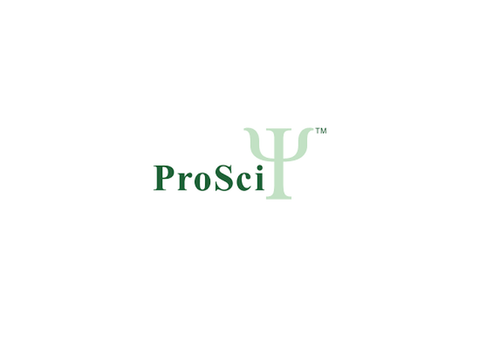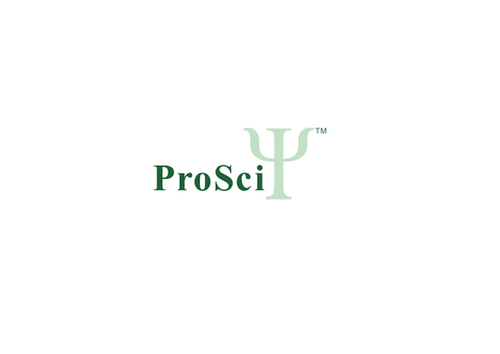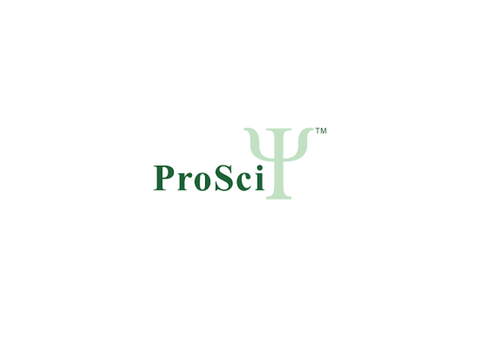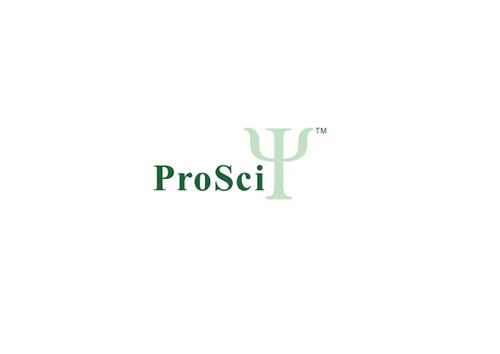Product Description
Myc Mouse Antibody [3E] | 79-625 | ProSci
Host: Mouse
Reactivity: Human
Homology: N/A
Immunogen: Myc Monoclonal antibodyPeptide sequence derived from C-terminal (aa. 410-432) of human c-Myc conjugated with KLH.
Research Area: Stem Cell
Tested Application: WB
Application: Western Blot: 1:500~1:1000
Specificiy: This mouse mAb only detects transfected proteins.
Positive Control 1: N/A
Positive Control 2: N/A
Positive Control 3: N/A
Positive Control 4: N/A
Positive Control 5: N/A
Positive Control 6: N/A
Molecular Weight: 60 kDa
Validation: N/A
Isoform: N/A
Purification: Spleen cells were isolated from mice by immunizing with synthetic peptide and KLH conjugates.
Clonality: Monoclonal
Clone: [3E]
Isotype: IgG1
Conjugate: Unconjugated
Physical State: Liquid
Buffer: Supplied in mice ascites.
Concentration: 1 mg/mL
Storage Condition: Store antibody at -20˚C for up to one year.
Alternate Name: MRTL, MYCC, c-Myc, bHLHe39, FKHR, FOXO1A, c-myc
User Note: N/A
BACKGROUND: Myc proto-oncogene encodes nuclear DNA-binding phosphoproteins that are involved in the regulation of gene expression and DNA replication during cell growth and differentiation. Myc encodes a protein of 65 kDa which is expressed in almost all normal and transformed cells. The expression correlates with the proliferation state of the cells. Transcription is repressed in quiescent or terminally differentiated cells. Expression of Myc is generally induced after mitogenic stimulation of cells or serum induction. Myc therefore is an important positive regulator of cell growth and proliferation. Myc has been demonstrated also to be a potent inducer of apoptosis when expressed in the absence of serum or growth factors. Apoptosis may serve also as a protective mechanism to prevent tumorigenicity elicited by deregulated Myc expression. Sequences of the Myc oncogene have been highly conserved throughout evolution, from Drosophila to vertebrates
 Euro
Euro
 USD
USD
 British Pound
British Pound
 NULL
NULL

![Myc Mouse Antibody [3E] Myc Mouse Antibody [3E]](https://cdn11.bigcommerce.com/s-452hpg8iuh/images/stencil/1280x1280/products/574451/809954/porsci_lo__79508.1648973713__02745.1649091578.png?c=2)

![Myc Mouse Antibody [3E] Myc Mouse Antibody [3E]](https://cdn11.bigcommerce.com/s-452hpg8iuh/images/stencil/100x100/products/574451/809954/porsci_lo__79508.1648973713__02745.1649091578.png?c=2)

![Myc Mouse Antibody [3E] Myc Mouse Antibody [3E]](https://cdn11.bigcommerce.com/s-452hpg8iuh/images/stencil/500x659/products/574451/809954/porsci_lo__79508.1648973713__02745.1649091578.png?c=2)




